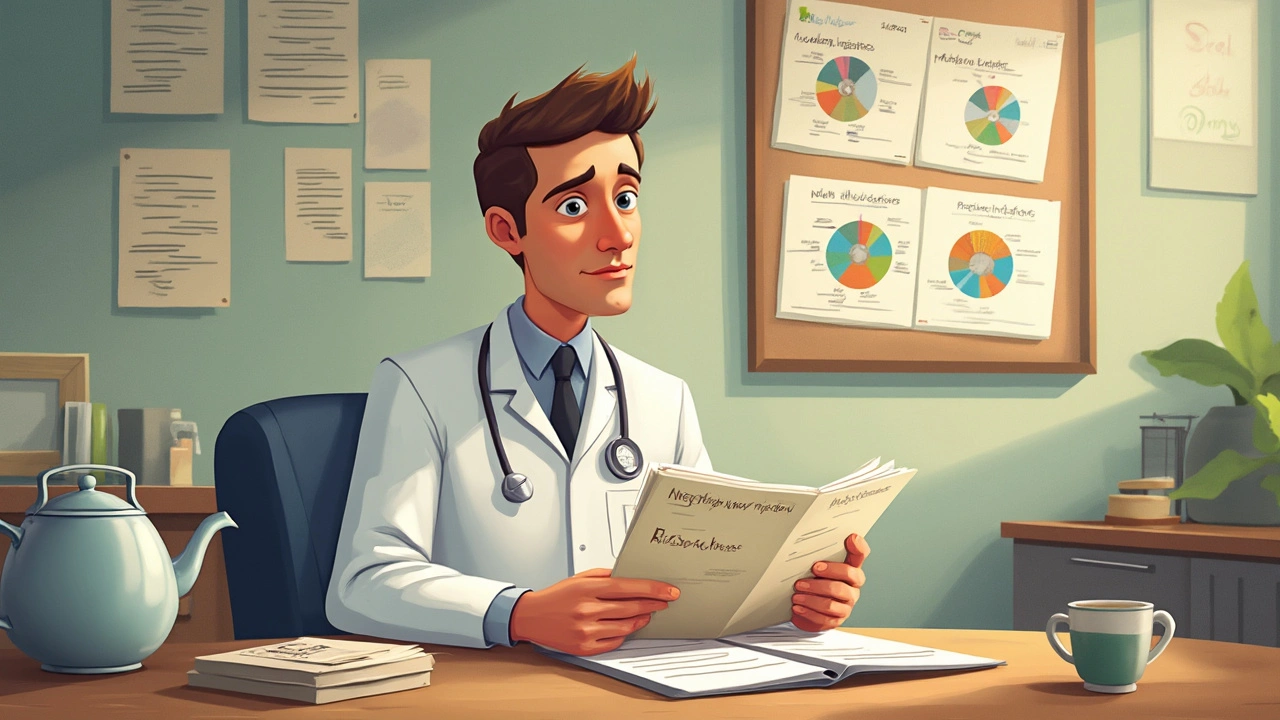Schizophrenia Treatment: What Works and How to Pick the Right One
Did you know that most people with schizophrenia feel better within weeks of starting the right treatment? The key is mixing medication with everyday strategies that keep symptoms in check. Below you’ll find the most common meds, why therapy matters, and simple habits that make a big difference.
Medication Basics
Antipsychotic drugs are the backbone of any treatment plan. First‑generation agents like haloperidol block dopamine strongly and can calm severe hallucinations, but they often cause tremors or stiffness. Second‑generation options such as risperidone, olanzapine, and aripiprazole tend to have fewer movement side effects, though they may raise weight or blood sugar.
When a doctor picks a pill, they look at your symptom profile, age, health history, and how you’ve reacted to meds before. It’s normal to try a couple of different drugs before finding the sweet spot. Always ask about how long it should take to feel a change – usually 2‑4 weeks for the first signs, up to 6‑8 weeks for full effect.
Pay attention to side effects. If you notice restlessness, drowsiness, or sudden weight gain, bring it up right away. Sometimes a tiny dose change or adding a low‑dose medicine for sleep or anxiety can smooth things out without stopping the main antipsychotic.
Therapy and Lifestyle Tips
Medications calm the brain, but therapy teaches the mind new ways to handle stress. Cognitive‑behavioral therapy (CBT) for psychosis helps you question scary thoughts and reduces the intensity of voices. Family counseling brings loved ones into the loop, so they know how to support you without nagging.
Regular routines are a hidden powerhouse. Setting a consistent wake‑up time, meals, and bedtime reduces the chaos that can trigger relapse. Simple exercise – even a 15‑minute walk – boosts mood and improves sleep, which in turn steadies medication levels.
Stay connected with a mental‑health team. A psychiatrist, therapist, and possibly a case manager can keep track of dosage changes, therapy progress, and any medical issues like diabetes that some antipsychotics affect. Don’t wait for a crisis to call – schedule check‑ins every few months.
Lastly, watch out for alcohol and recreational drugs. They can interfere with meds and make symptoms flare up. If cravings hit, reach out to your care team; they can suggest safer coping methods or refer you to a support group.
Putting these pieces together – the right medication, supportive therapy, steady daily habits, and a proactive care team – gives the best chance of keeping schizophrenia under control. If you’re starting a new regimen, give yourself time, keep a symptom diary, and never hesitate to ask questions. Small adjustments now can save a lot of trouble later.
Risperdal (Risperidone) vs. Common Antipsychotic Alternatives - How to Choose the Right One
A detailed comparison of Risperdal (risperidone) with leading antipsychotic alternatives, covering mechanisms, efficacy, side‑effects and how to pick the best option for schizophrenia or bipolar disorder.
9 Alternatives to Risperidone: Exploring Other Antipsychotic Options
Looking for alternatives to Risperidone? This article breaks down nine other antipsychotic medications, weighing their pros and cons. You'll get straightforward info about each option, handy tips, and a clear comparison of their features. Discover which alternatives might fit best for different needs and situations. If you're exploring medication changes, it's a must-read to make sense of your choices.


